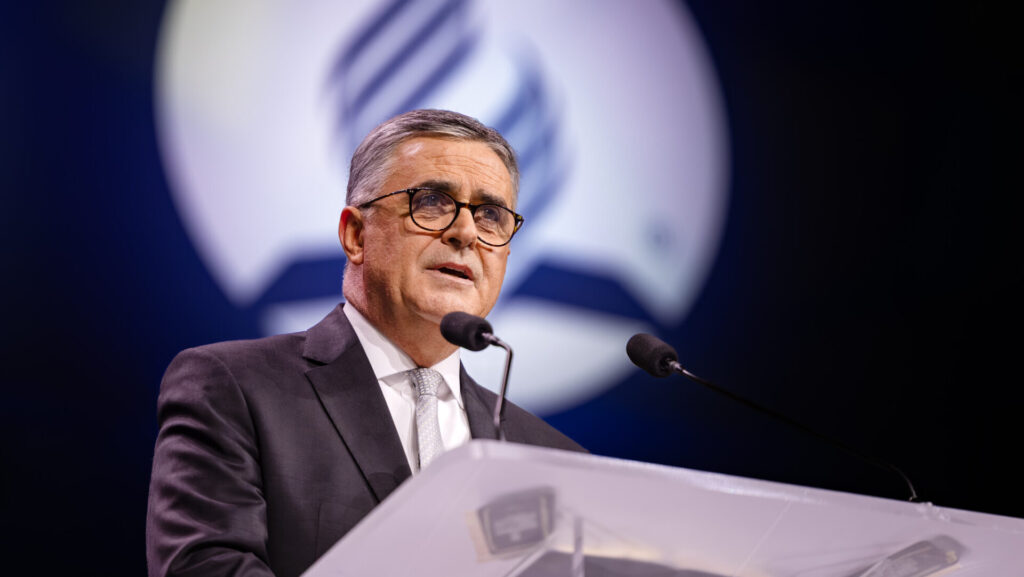An Adventist church in Australia is among a number of churches, unions and conferences around the world that have submitted statements responding to the General Conference’s compliance proposal due to be discussed at the GC Annual Council next week.
The open letter from the leadership council of Springwood Seventh-day Adventist Church in Brisbane states that they are adding their “voice to others in sharing our concern regarding the proposal of the GC ADCOM”.
It goes on to say, “Our God is a God whose governance is undergirded by freedom of choice. Our Protestant heritage leads us to remain convicted regarding our current pattern of church operation.
“We believe this new GC proposal will be detrimental to the robust health of our Church at large, as together we pursue the Lordship and authority of Jesus in living out the gospel commission within our unique local context.”
The Springwood church letter follows a succession of statements from churches, unions and conferences from around the world raising concerns about the compliance document.
South Pacific Division (SPD) president Pastor Glenn Townend has added his thoughts to the debate.
“Most Church leaders believe there needs to be consequences for not being compliant,” he said. “But giving the power to [General Conference] ADCOM to work through the matters is against the elected representative system that we have traditionally worked in.”
Pastor Townend, who is currently in the United States to attend the Annual Council, has asked the Church in the SPD to pray for God’s outcome.
In light of the importance of these discussions, and perhaps in response to some of the backlash, Pastor Ted Wilson, president of the Seventh-day Adventist world Church, has also released a statement calling for special prayer on the issue between now and October 20.
“In the responsibility I have as president of the General Conference, I am calling for a special season of prayer beginning immediately and lasting through Sabbath, October 20, to ask that there be a gracious, respectful and loving spirit shown by all in attendance as we allow the Holy Spirit to lead in the deliberations as to what the world Church wishes to see accomplished.”
(Read full Springwood church statement.)
Annual Council
GC Annual Council 2018 is attended by division and union administrations from all of the world’s regions. This year, the most talked about agenda item in the lead-up to the meeting is the recommendations from the Unity Oversight Committee around compliance (full text can be read here).
The policies outline a path to reconciliation and compliance if a region of the Church is found to be out of step with the wider Church body.
The process outlined is summarised as: 1. Non-compliance reported to higher level of administration. 2. That level has responsibility to address non-compliance. 3. Process includes prayer and dialogue, clear written and verbal explanations, create timeframe to address non-compliance. If these steps fail, or communication breaks down, the matters will be referred to a higher level of administration. If these processes fail, the case will be referred to the appropriate General Conference Compliance Review Committee. Appeals may be made directly to this committee. Five compliance committees were set up on July 17, 2018 by the General Conference Administrative Committee (ADCOM) to examine compliance in the following areas: ordination, homosexuality, creation/origins, core beliefs and Church policies.
After this process has been exhausted, leaders can be warned, publicly reprimanded, stopped from voting and eventually removed from their positions. It is primarily these measures that many have concerns with as a majority of division leaders agreed with the need for some form of compliance enactment.
Proponents of the compliance policies argue that there must be some way to ensure unity and follow through on decisions made by the world-wide Church body at a GC session.
Pastor Wilson put it this way: “The purpose of this recommendation is to provide a framework for organisations nearest to an issue of non-compliance to solve that issue in a Christlike, redemptive way.”
Opponents of the policies argue that these changes will concentrate power and authority too heavily at the top of the system. They believe supporters of women’s ordination will be targeted and that women’s ordination is a matter of conscience and that this system will punish those areas of the world that are following their consciences on this matter.
Leaders of the divisions, as representatives of the General Conference around the world, have not officially said much in light of the upcoming Annual Council. However, a number of union leaders have spoken out about the upcoming vote, have voted to send open letters and/or made official statements—including the Czech-Slovak Union, the German Unions and Pacific Union (USA).
Some conferences and local churches have also been outspoken on the issue, with a German church sending a petition around churches in Germany and Switzerland that has been signed and returned. Some European countries argue that to comply with the Church’s ruling on women’s ordination, they will be creating policy that illegally discriminates in their countries.
In response to some of the allegations, Adventist News Network released a document addressing “Questions regarding the Seventh-day Adventist Church and its leadership” a few days ago.
Background: where did these discussions come from?
The background of the issues to be discussed at the 2018 Annual Council stem from a vote taken at the 2015 General Conference session in San Antonio. A proposed change would have allowed regions of the world to ordain women, if culturally appropriate. That proposal was defeated. Before the proposal was voted on a few Unions had begun to ordain women. Others have followed since the vote. In the Adventist system, unions oversee ordinations.
This led to the Annual Council in 2016 discussing and voting on a document called “Unity in Mission: Procedures in Church Reconciliation” (read report and document here). Voted by a margin of 169 votes to 122, a two-phase process was outlined. The first step involved listening and prayer, consultation, pastoral letters, more listening and prayer before moving to phase two, which was not outlined until the 2017 Annual Council.
In the year after the vote, some visits took place with “non-compliant unions”. Thomas Lemon, head of the Unity Oversight Committee, met with three of the divisions (North American Division, Trans European Division and Inter-European Divison) reporting back to the Annual Council in 2017 that he found “no sign of rebellion” and that “unity and the commitment to the message of the Seventh-day Adventist Church is as strong as I have ever seen”. He did not find time to meet with SPD leaders. Thomas Lemon has since resigned from the position and been replaced by Mike Ryan.
The document voted in 2017 by a vote of the same margin (169-122), following much debate and discussion, outlined a one-year process for reconciliation, which would be overseen by the Unity Oversight Committee.
Adventist Review reports from the time emphasise that the issues have pivoted from being specifically about women’s ordination to be more about processes and policies that look at compliance more generally.
The Unity Oversight Committee has overseen developments between annual councils and has been overseen itself by ADCOM.
New chair Mike Ryan, in December 2017, committed to making the process “open and transparent”. The committee conducted a survey and attempted to assess the level of compliance throughout the world regions.
The discussions at Annual Council next week could be crucial for the Seventh-day Adventist Church and its future.






